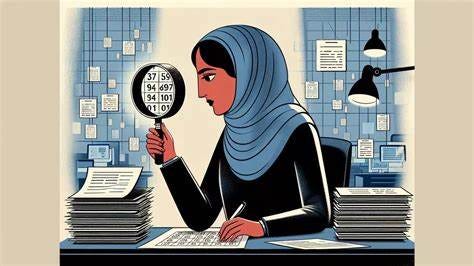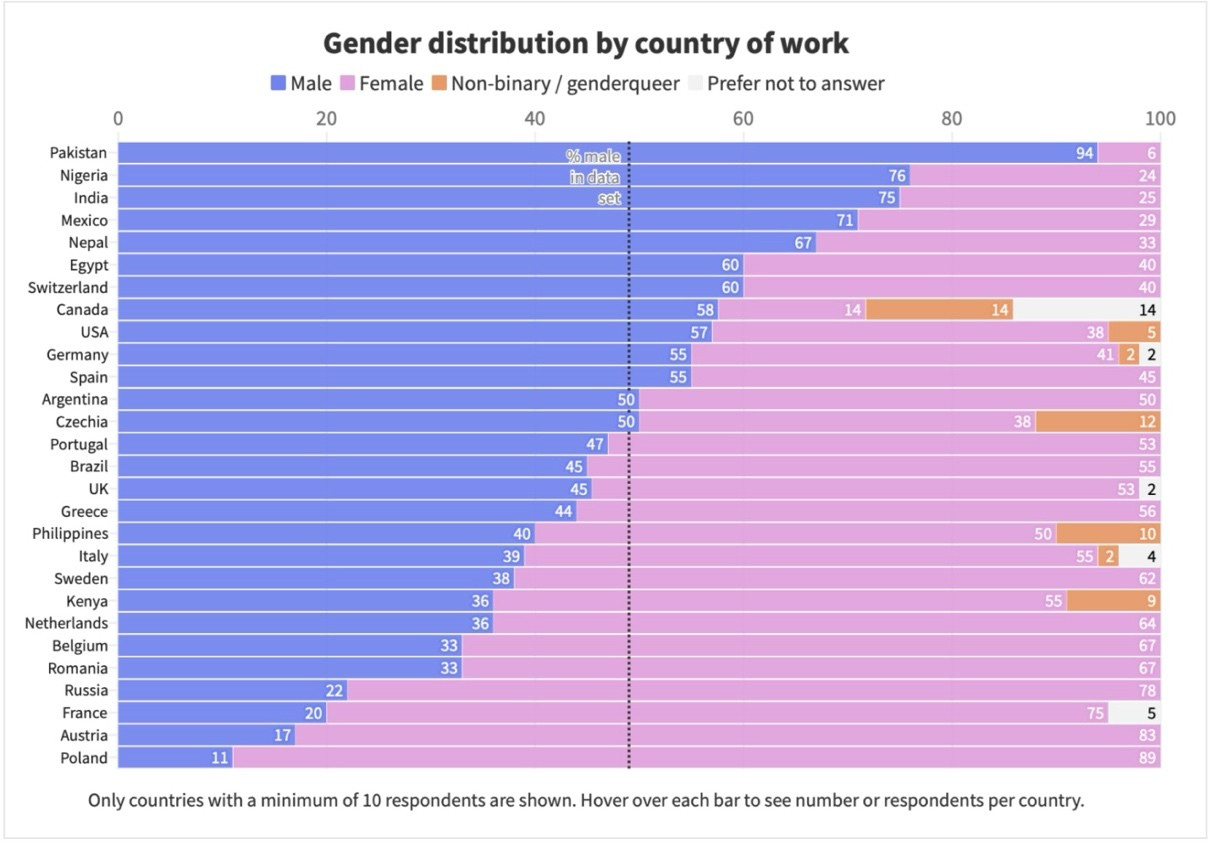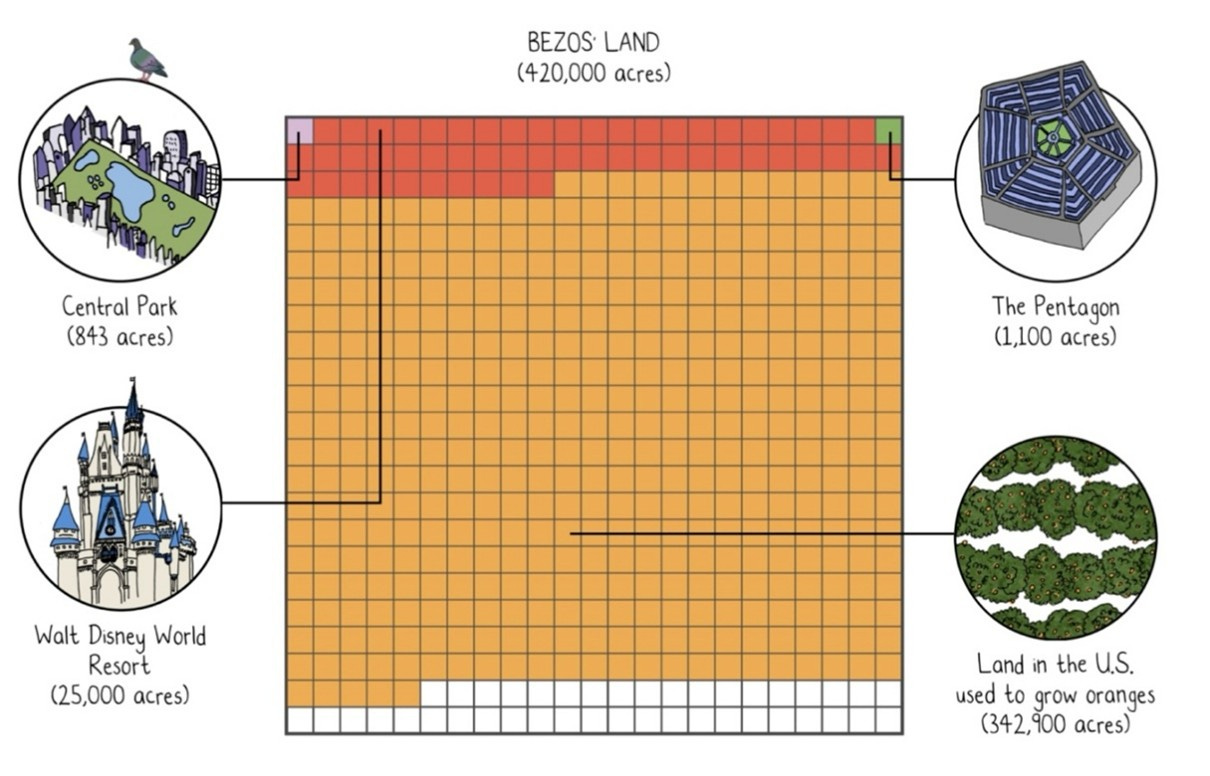Women and Data Journalism
In this newsletter, Megan and Leah will talk you through the marginalisation of women in data journalism in the past but how this led to the empowerment of women in the industry today.
Picture credits: Cyberjournalist.net
Bourdieu’s field theory:
This theory devised by Bourdieu has been consistently applied to the journalism industry to explain gender inequality (Bals et al. 2024). The field is meant to be representative of an area in which individuals compete against each other for a position of power. The more social, economic, and cultural capital an individual has, the more possibilities they can gain in their chosen industry.
In the past, the data journalism industry has been predominantly made up of white, older men (Bals, et al. 2024). Because there were many men in working within data journalism, tasks associated with the job became gendered.
Padavoni (2019) states that coding and charts were perceived as the ‘geeky part’ of data journalism, and geeky means less accessible for women as women tend to not fit into this stereotype despite there being no significant difference between the technical data skills of men and women, highlighting the imbalance of recognition when it comes to women data journalists.
How women data journalists persevered
However, this does not mean that women were seen as unequal forever.
Padavoni (2019) explains that the women journalists who were passionate about technology and data journalism would not conform to the gender expectations in the industry and instead aimed for equality and empowerment by coming together through their love for technology.
This way, women were able to come together and expand on their data journalism skills and break the gender stereotypes which exist within the industry.
The statistics
A recent survey completed by the European Journalism Centre in 2023 found that in the data journalism industry:
49% of participants were male
48% were female
1% was nonbinary, and 1% chose not to answer.
Picture credits: European Journalism centre (2023)
When comparing these statistics to the EJC survey in 2022, there has been an evident increase in women in data journalism even though only a small amount of time passed between the two surveys. The EJC survey in 2022 found that:
58% of respondents were male
40% of respondents were female
1% was nonbinary, and 1% chose not to answer
Picture credits: European Journalism Centre 2022
The difference between the percentage of males and females in the industry in the 2023 survey suggests that data journalism as a career is becoming more progressive and inclusive in terms of gender and equality.
Women are starting to become more recognised for the work they produce and are becoming very successful within data journalism.
We recognise that there has also been an increase of women in the industry from 2022 to 2023 which helps confirm that even with a short amount of time passing, more women have entered the data journalism sector.
Women in Data
What is it?
Women in Data (WiD) is a UK-based organisation founded in 2014 by Roisin McCarthy to empower and support women throughout their careers in data and technology.
What they aim to do:
Women are currently only representing 20% of professionals in artificial intelligence and data and with WiD collaborating with the likes of Google, Microsoft, JPMorgan and more, they aim to create a more inclusive data community.
The Guardian have collaborated with Women in Data to promote inclusion within the data sectors. This partnership was highlighted through some profiles of female data journalists at The Guardian, sharing their experiences within the field.
This allows women to have more of a voice in professional careers such as data journalism, allowing these professionals to feel inspired and as though they are not being stopped by the likes of a Glass ceiling.
Notable data journalists who are women
Christine Jeavans: Christine is an award winning, senior data journalist at the BBC and works to tell stories across digital, broadcast and social audience.
Christine’s work:
- UK death rate ‘reaches record low’
- Millions of pupils return to school amid Covid spike concern
Matilda Davies: Matilda is an award-winning data journalist for the Times and The Sunday Times.
Matilda mainly does visualisation graphics in data journalism and her main topics of interests include politics, health, crime, and culture.
Matilda’s work:
- Can my supermarket Clubcard really tell me how healthy I am?
- Is the UK economy that bad? Five charts that show its ok actually.
Mona Chalabi: Mona is a British data journalist who has contributed significantly to data journalism though her work with The Guardian and The New York Times.
In 2023, she received the Pulitzer prize for illustrated reporting and commentary for her illustrations that combined statistical reporting with analysis in regard to the immense wealth and power of Amazon founder, Jeff Bezos.
Mona’s work:
Picture credits: The Pulitzer Prizes 2023
Carole Cadwalladr: Carole is a British investigative journalist, known for her work on disinformation, social media manipulation and political influence campaigns.
She has led ground breaking investigations using data, specifically with her reporting in The Observer and The Guardian on the Cambridge Analytica scandal, publishing an expose about the companies exploitation of Facebook data.
Carole’s work:
‘I made Steve Bannon’s psychological warfare tool’: meet the data war whistle blower.
Concluding thoughts
Overall, it is evident that women are making an impact in the data journalism industry. It can be implied that by having diverse identities such as women in the industry can be a driving force in offering a different perspective on how hegemonic power structures can change overtime (Bals et al. 2024), suggesting that there is influence in the capital of diversity.
Women have, and are continuing to make an impact in the industry as proven in the above examples and also in the statistics from the 2023 EJC survey... May this influence of women in the industry continue to rise in the years to come!
Are there any women data journalists that inspire you?
We hope you enjoyed this newsletter on women in data journalism!









Love this!
You've chosen a really important theme in data journalism to write about. Good to dive into the survey. I think including Bourdieu's theory - especially at the top of the article - might not fit into our Newsletter's general style. We're not an academic journal! Really liked your profile of key female data journalists in the UK but think about how this section could have been formatted more clearly. Good work!